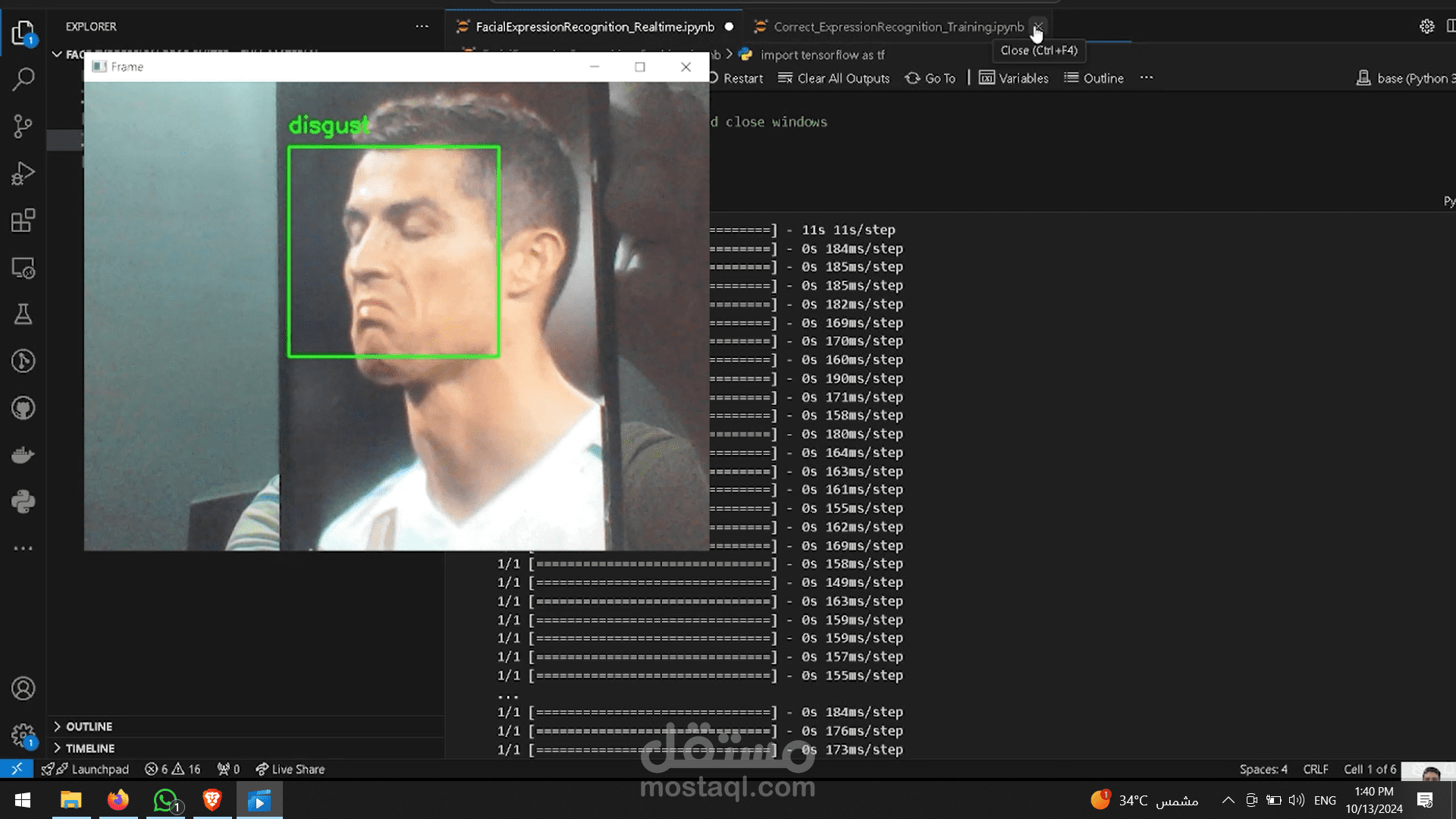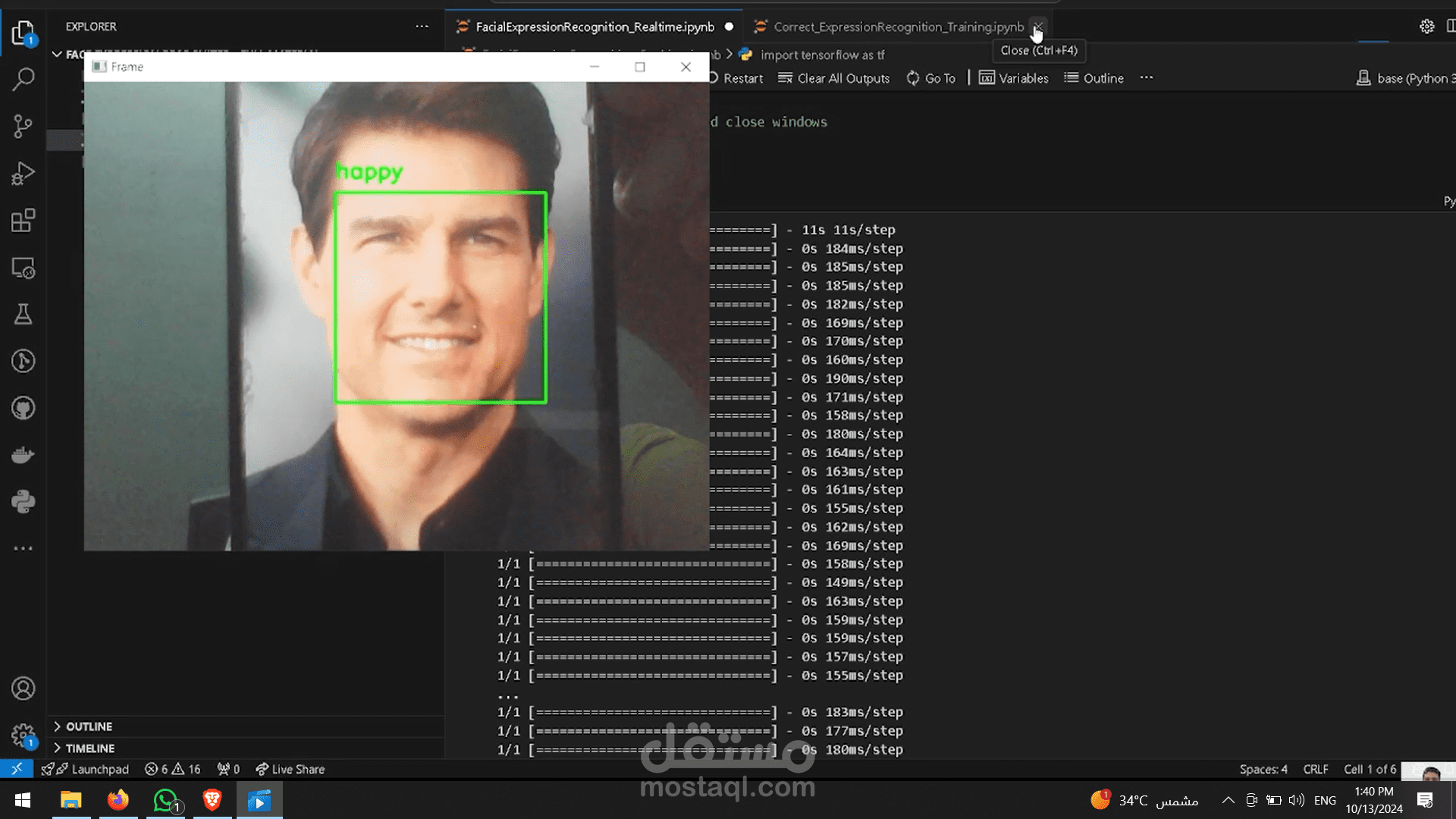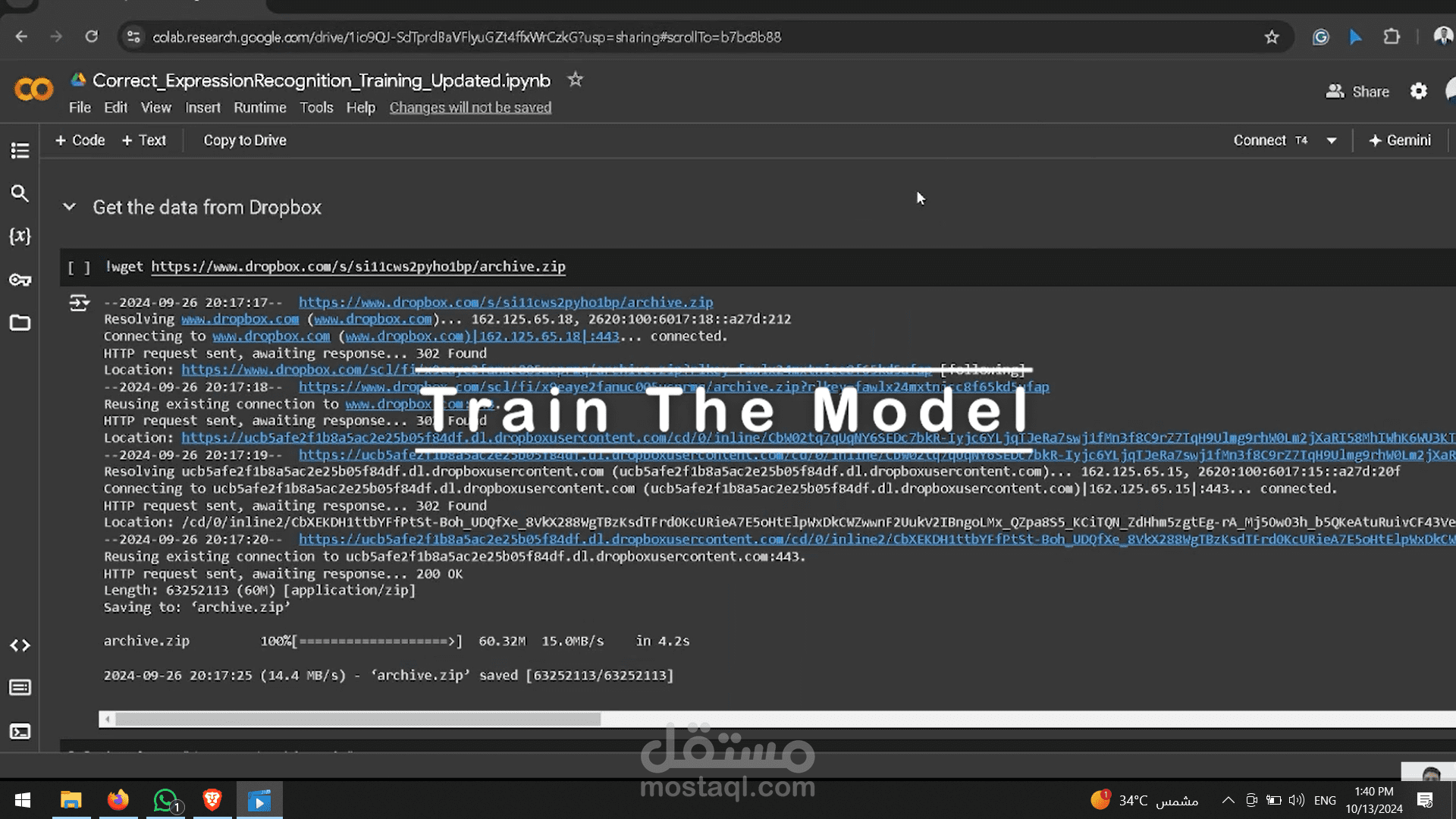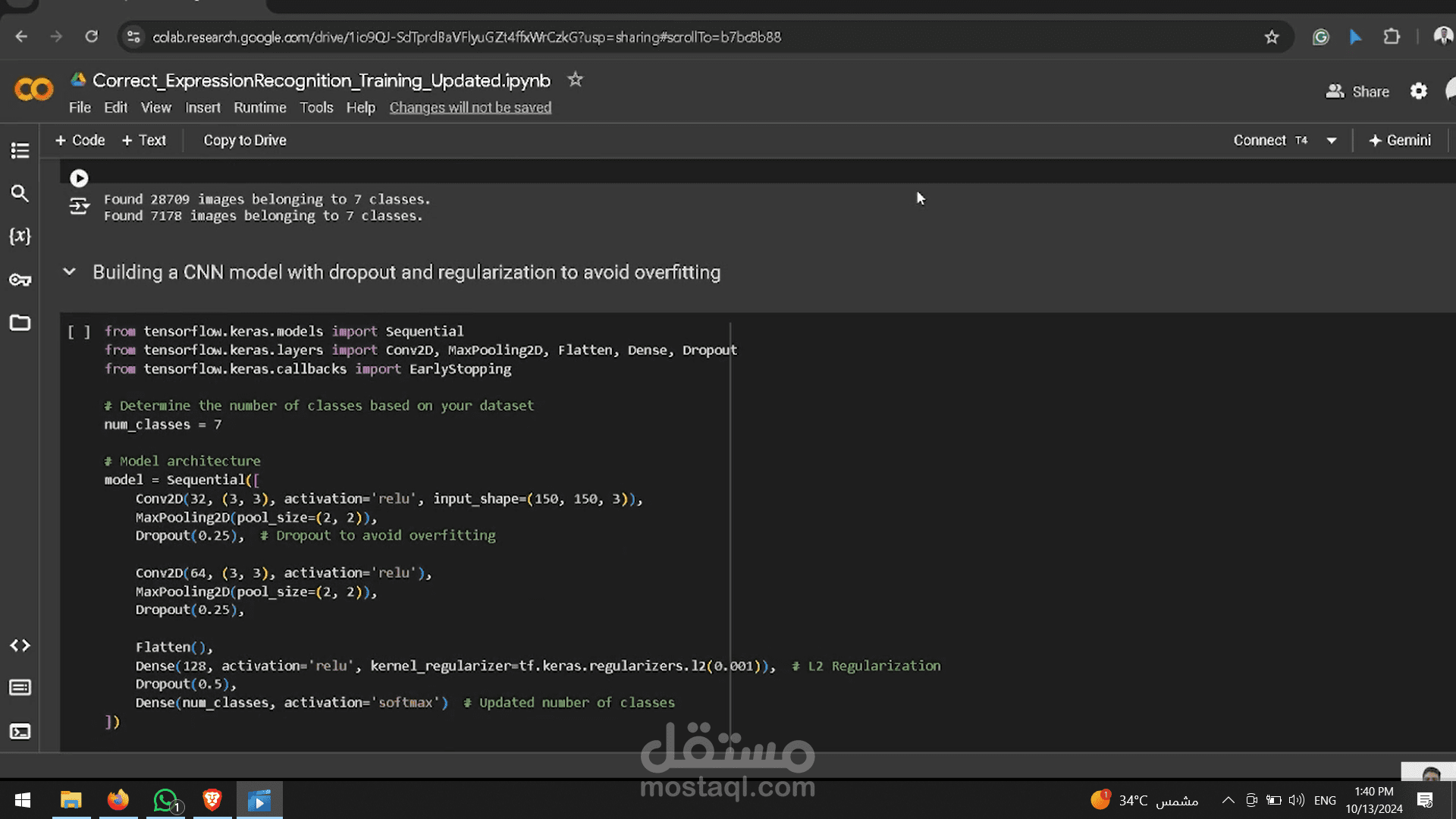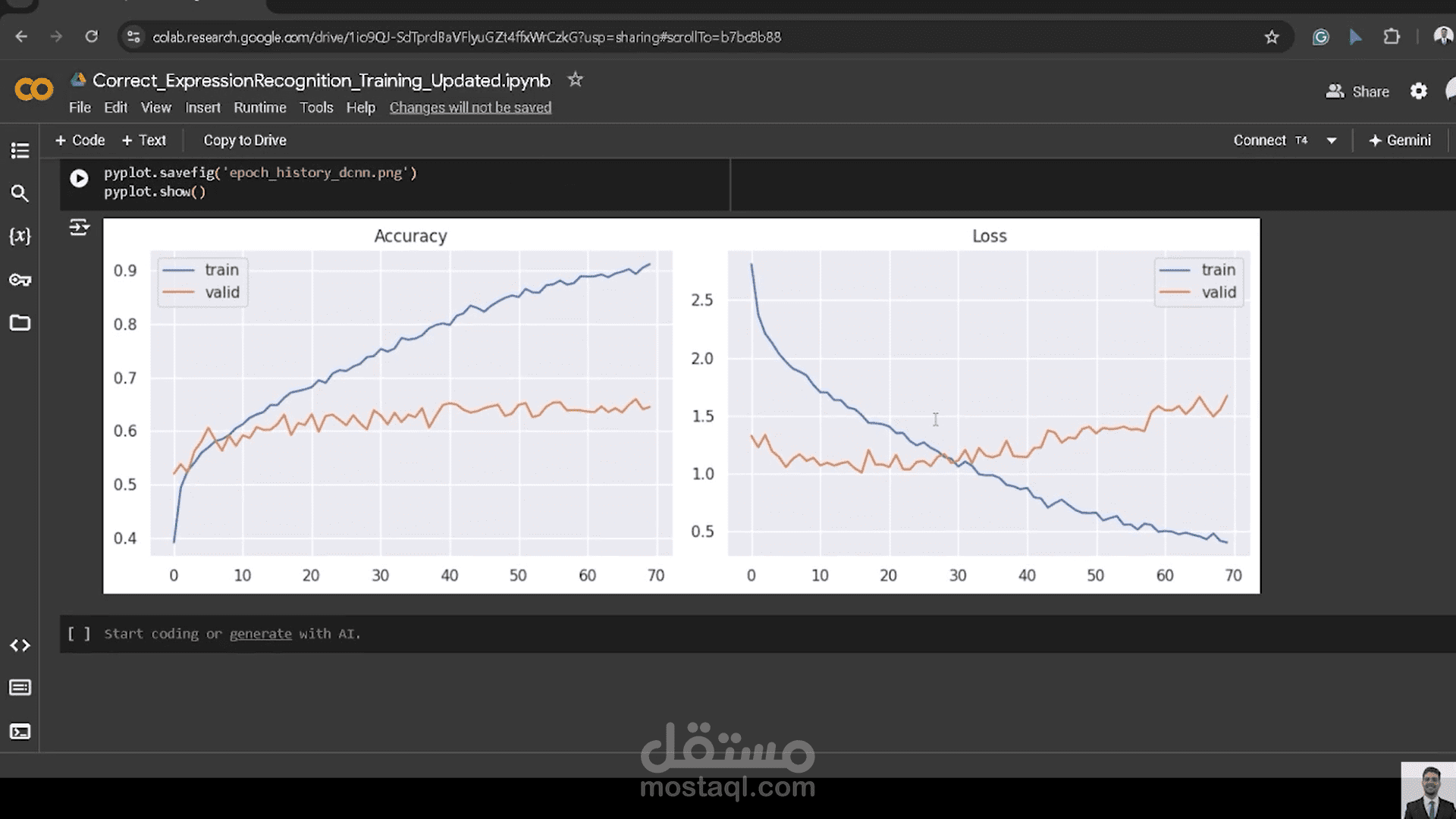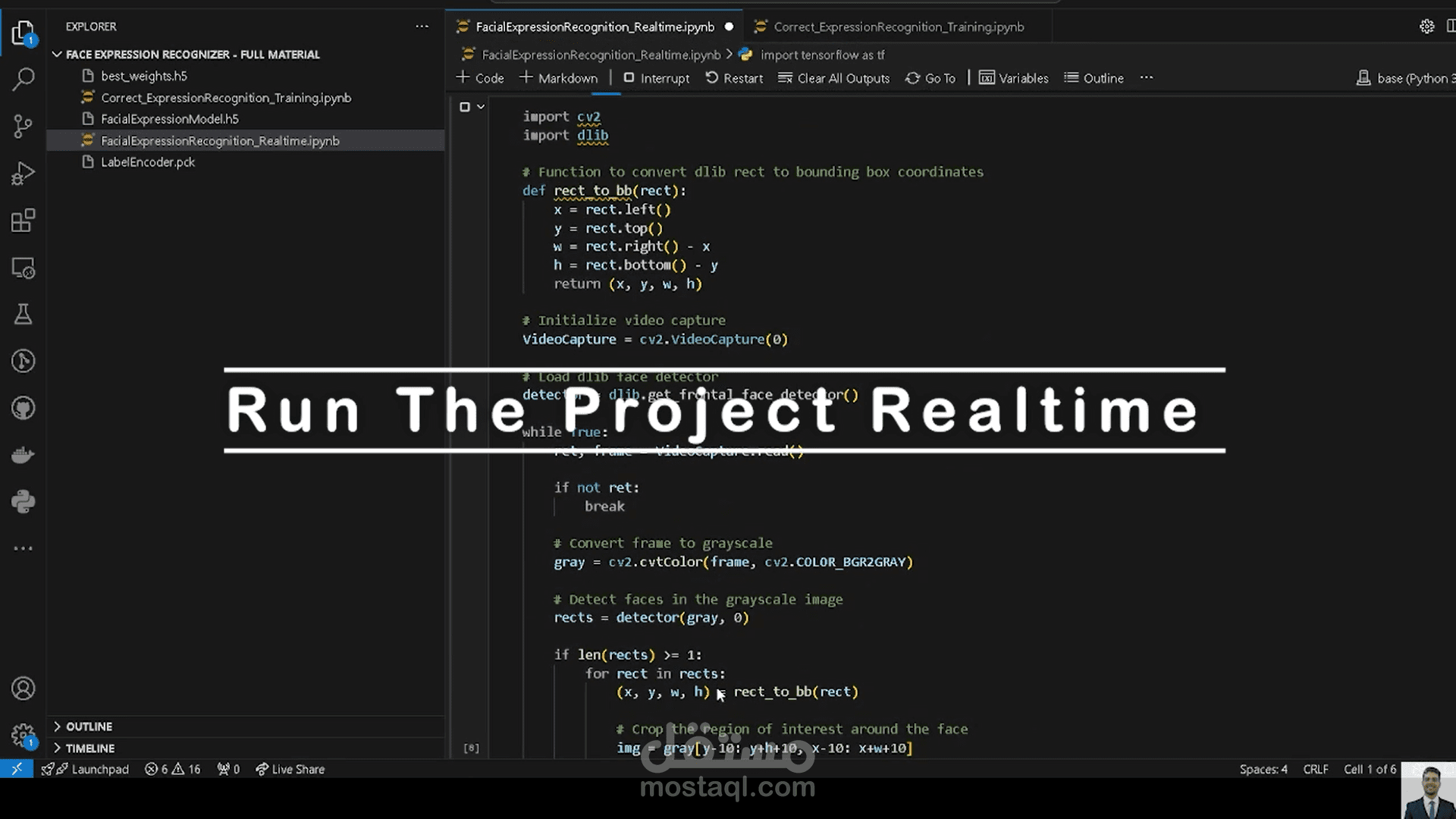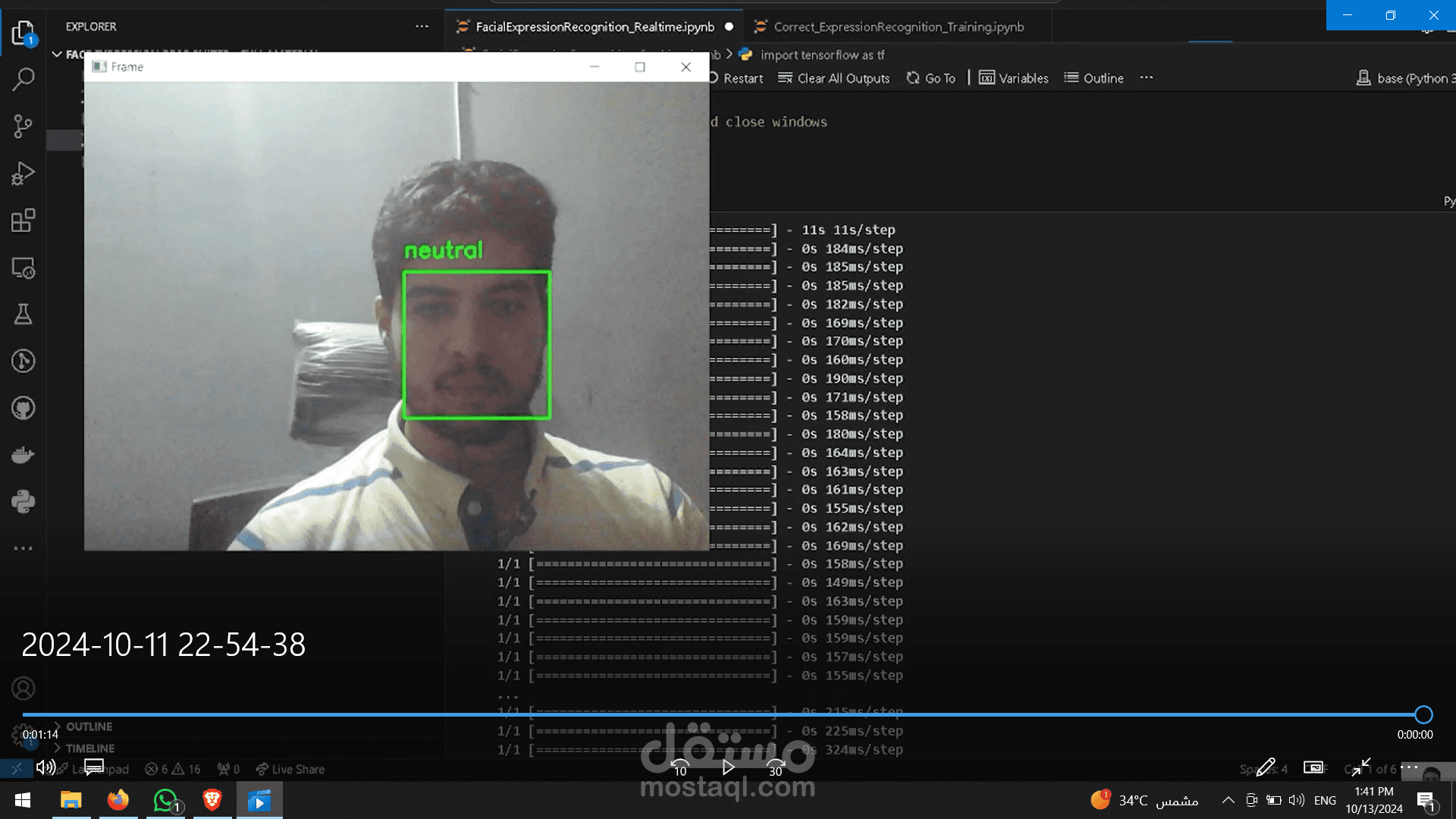Facial emotion Recognition
تفاصيل العمل
Overview
This project aims to classify facial expressions using a Convolutional Neural Network (CNN). The model is trained on a dataset of facial images and can predict emotions such as happiness, sadness, anger, etc.
Dataset
The dataset contains images categorized into 7 different expressions. Each image is preprocessed and resized to 150x150 pixels before being fed into the model.
Model Architecture
The CNN model is composed of several layers:
Convolutional Layers: Extract features from the image using filters.
Pooling Layers: Reduce the dimensionality of the feature maps.
Dropout Layers: Prevent overfitting by randomly setting a fraction of input units to 0.
Fully Connected Layers: Perform classification based on extracted features.
Detailed Architecture:
Conv2D Layer: 32 filters, kernel size (3, 3), activation 'ReLU'.
MaxPooling2D Layer: Pool size (2, 2).
Dropout Layer: 25% dropout rate.
Conv2D Layer: 64 filters, kernel size (3, 3), activation 'ReLU'.
MaxPooling2D Layer: Pool size (2, 2).
Dropout Layer: 25% dropout rate.
Flatten Layer: Flattens the 2D matrix into a 1D vector.
Dense Layer: 128 units, activation 'ReLU', L2 regularization.
Dropout Layer: 50% dropout rate.
Output Layer: Softmax activation with 7 units for 7 classes.
How CNNs Work
Convolutional Neural Networks (CNNs) are deep learning models designed to process structured grid data, such as images. CNNs use convolutional layers that apply a set of filters to the input image, extracting features like edges, textures, and patterns.
Image Processing:
Rescaling: Images are rescaled to values between 0 and 1.
Data Augmentation: Techniques like rotation, zoom, and flip are applied to increase data diversity and prevent overfitting.
Normalization: Input images are standardized to ensure consistent input distribution.
بطاقة العمل
| اسم المستقل | مصطفى ر. |
| عدد الإعجابات | 0 |
| عدد المشاهدات | 10 |
| تاريخ الإضافة |
